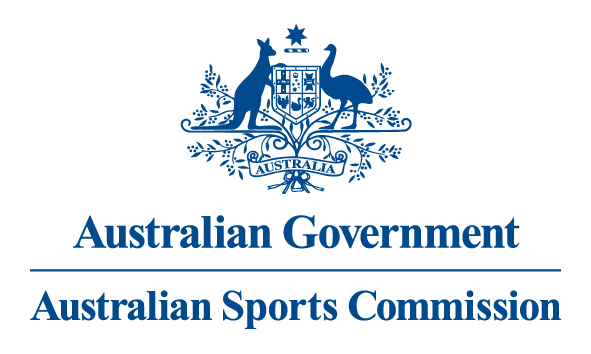Water Requirements for Horses: Five Important Facts
Of the six nutrients required by the horse – carbohydrates, protein, fat, vitamins, minerals and water; water is by far the most important to the horse, yet is often the one we think of last. Therefore, we are going to look at some key principles about water that are worth remembering!
A horse can live for almost a month without food, but within a mere 48 hours without water a horse can begin to show signs of colic and can quickly become life threatening. Consider these five points to ensure the proper quantity and quality of water is being offered to your horses year-round:
1) Know your horse’s normal water intake.
Horses normally consume between 20–55 liters of water in a 24-hour period. However, it is important to remember that this may change depending on your horses living arrangements and climate.
An individually stabled horse is usually easy to monitor for water intake if you are filling buckets two or three times a day, but if you have automatic waterers in the stables, you have little idea of how much the horse is consuming.
If a horse is kept on pasture, whether individually or in a herd, assessing water intake becomes increasingly challenging. Once again, are you using a manual filling system such as filling an old bathtub with a hose every couple of days, you will have some indication of water intake. But, if you are relying or automatic/gravity-fed water troughs or natural water sources such as dams or rivers, you have very little insight into your horse’s water consumption.
Checking water troughs at least daily is important to ensure adequate supply of water is available to horses at all times. In communal paddock situations, ensure all horses are gaining access to the water source, and if possible ensure multiple water points to allow for herd dynamics.
In the cases where you have automatically filling troughs, dams or your horses are kept in group paddocks, hydration can easily be assessed by feeling their gums to ensure they are moist and pinching a small area of skin on their neck or shoulder to watch it bounce back to its normal position.
2) Consider the type and amount of pasture available.
Horses kept in paddocks also ingest water through their pasture intake. In fact, fresh pasture is approximately 60–80% moisture, meaning they obtain a substantial amount of water while grazing. In contrast, grains, concentrates, and hay contain far less moisture, which means horses need to drink more to meet their water needs.
The moisture content of pasture can vary at different times of the year. For example, pasture during summer tends to be drier and therefore have a lower moisture content. Pasture during late winter and spring may have an increased moisture content. During this time of the year, some horses and ponies will develop loose manure and this may be one of the reasons. However, chronic loose manure is not normal and warrants further investigation by your veterinarian.
3) Consider the environmental temperature and humidity at different times of the year.
Weather can impact water consumption. Typically, horses consume more water during the hot, humid summer months. That said, some horses actually drink more water in the winter than in the hot summer months, and therefore it is important to know what is normal for your horse and continuously monitor their intake to detect any changes early.
Horses sweat to help with thermoregulation. Heat evaporates from the skin through sweating under moderate environmental temperatures. In hot, humid temperatures, however, when the ambient temperature is the same as the horse’s body, a horse’s normal cooling mechanisms become ineffective and the horse can be at risk of dehydration and heat stress. This can be a risk for even paddock horses in extreme temperatures, but for working horses owners should consider a change in their schedule where possible to minimize heat stress risks.
4) Exercise and competition can change water and electrolyte intake.
It’s a no-brainer that when a horse sweats, whether that be through exercise or weather conditions, they require a higher water intake. During exercise, sodium, potassium, chloride, calcium, and magnesium are lost in the feces, urine and sweat. Loss of these electrolytes causes fatigue and muscle weakness and decreases the thirst response to dehydration. Therefore, it is vital to replenish electrolyte losses as well as increase water intake in performance horses that sweat heavily. Kentucky Equine Research produces a variety of electrolyte solutions, such as Restore and Enduramax in both powder and paste form which are recommended for use in horses that sweat.
Many people have experienced a horse who won’t drink when they are away from home, either travelling or competing. Ensuring your horse drinks enough water is crucial to preventing dehydration and the associated effects on the horse. Inadequate water intake can be compounded by sweating during exercise or travel and result to impaction colic, dehydration and potentially other health problems requiring veterinary intervention.
It is a good idea that you have a back-up plan when it comes to getting your horse to drink. There are many ideas which have been used over the years to encourage horses to drink, from adding molasses, apple cider vinegar, cordial or electrolytes to the water. The key is to not wait until you are on the road to see if these flavors appeal to your horse. A couple weeks before you plan to travel or compete, do a trial run with your horse to make sure you have found a solution. Kentucky Equine Research produces a scientifically formulated, highly palatable blend of ingredients that encourages horses to drink. Field studies have shown that 9 out of every 10 horses offered Drink Up increased their water intake.
5) Overall horse health impacts water consumption.
Certain times throughout a horse's life such as when are mare is lactating can increase the daily requirement and water intake. Studies have shown that lactating mares require 1.8 to 2.5 times more water than that necessary for maintenance, and this may be due to increased feed intake or milk production. Differences in diet and/or ambient temperatures can further influence the water requirement to two or threefold greater than at maintenance. Therefore, it is especially important that lactating mares should have unlimited access to fresh, clean water.
Underlying health issues can impact water consumption. Changes in your horse’s normal intake of water may indicate other problems and this should be noted and mentioned to your veterinarian to determine an appropriate course of action. Diarrhea and chronic kidney disease, in particular, can cause increased water losses from the body that need to be replaced.
Kentucky Equine Research offers a free nutrition consultation service on 1800 772 198 or email [email protected] if you would like more information or just to make sure your horse is receiving a balanced diet, please contact us !









